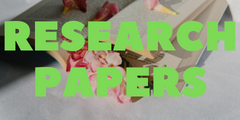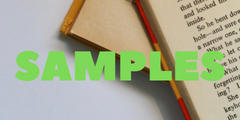It can be daunting to write critical analysis essays, but it can be done with the right approach.
What is Critical Analysis Essay?
Critical analysis essays combine critical reading and critical thinking skills. The author analyzes an author’s or artist’s point of view and examines what they have written. This essay examines the author’s argument, thesis, and point-of-view. It uses logical reasoning and supports evidence.
How To Write A Critical Analysis Essay
There are two components to critical analysis. Each component is equally important. The first is reading. Critical analysis assignments are designed to help you understand your subject matter. This requires that you read, study, and/or watch carefully the source text. The writing part is the second. Here are nine writing and organizational tips that will help you write the best critical analysis essay possible.
1. Take the time to read carefully and be attentive.
A writer’s point-of-view and preferred techniques must be accurately represented. Before you start writing, you must be sure that you have a good understanding of them.
2. Select a thesis statement.
Your thesis should address the author’s perspective and writing style. The thesis should be supported by evidence from the text. Remember, your essay’s purpose is to analyze the work of another person. A thesis statement is the foundation of your analytical essay.
3. Write an Introduction Paragraph.
Your introduction should be engaging. This is why it’s important to take extra care in writing your opening paragraph. A hook is a powerful way to start an introduction. This could be a question or bold statement. The introduction paragraph should also identify the book or piece of art you will be analysing. The author’s name, title, and any publication information should be included in the intro paragraph. The thesis statement is the star of the essay and a good introduction should conclude with it.
4. Carefully organize the body of your essay.
Divide your essay into sections that address specific topics. Your thesis statement should be supported by all body paragraphs. They can provide background information, detail or contrasting views. Your essay’s scope will determine the number of paragraphs. Your essay’s structure is as important as its subject, so plan every body paragraph carefully.
5. Create clear topic sentences
The topic sentence should be the first paragraph of each main body paragraph. It should give a summary of the paragraph to come and tie it back to your main thesis.
6. Your essay should be supported by evidence.
The essay’s main body should contain a mix of analysis and substance. It is not enough to make assertions that don’t have solid support. As such, you should back up your main points by citing textual evidence from the source material. As needed, use footnotes and/or endnotes.
7. Summarize the Analysis in a Final Paragraph.
It doesn’t matter if you want to achieve a high mark or provide an enjoyable experience for your readers, wrap up your analytical essay with the conclusion paragraph. This summarizes your argument. You don’t need to add new evidence in the concluding paragraph. It is not the place to introduce new evidence.
8. Revise when it is necessary.
Once you are done with a draft of your manuscript, take it off for a couple of hours or days before coming back to revise it. Ask yourself these questions: Am my portrayal of the author’s viewpoint accurate? Are I supporting my claims with evidence from text? Do I provide analysis and not my personal opinion? Are my sentences and grammar clear? Is my spelling correct?
9. Create a final draft.
You can edit your essay based on the results of your self-analysis. You can now submit your essay. Or, share it with a mentor, teacher, friend or colleague for fresh perspectives.



